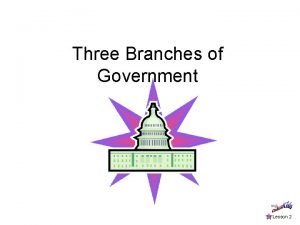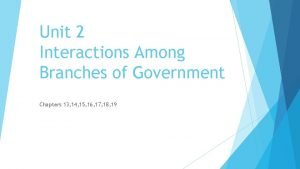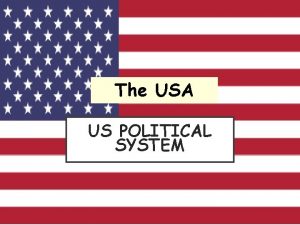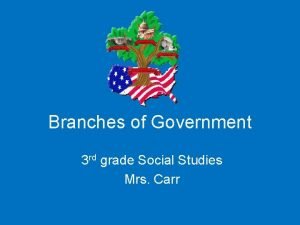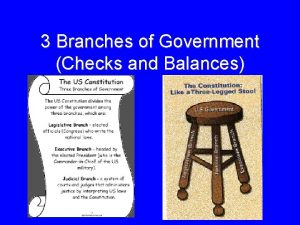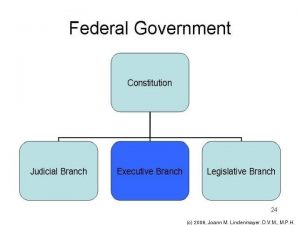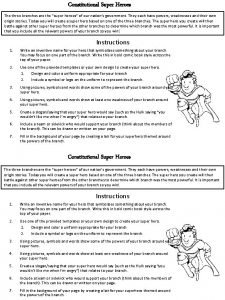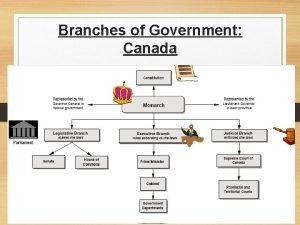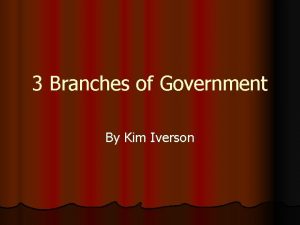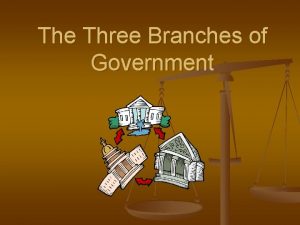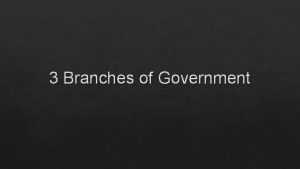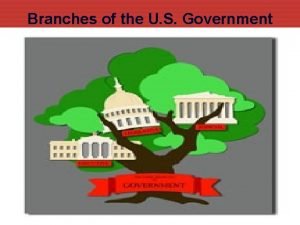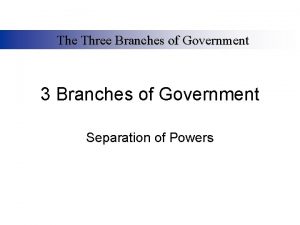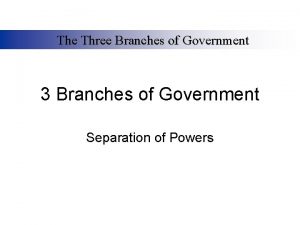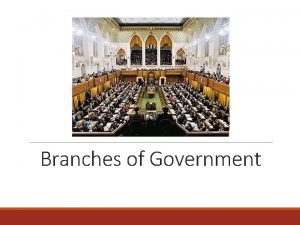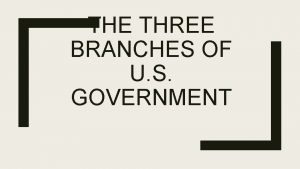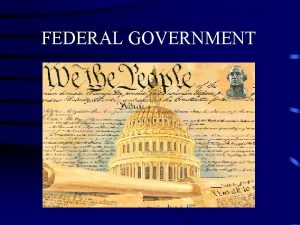The Three Branches of Government 3 Branches of

The Three Branches of Government 3 Branches of Government Separation of Powers

The Three Branches of Government The Main Idea The Constitution prevents any person, or any part of the government, from taking too much power. It does this by creating three separate branches of the federal government and distributing power among them.

The Three Branches of Government Responsibilities of the three branches of government: • Legislative—the lawmaking branch • Executive—executes the country’s laws • Judicial—interprets laws and punishes law breakers

What are Checks and Balances? • The constitution prevents any of the three branches of the U. S. government from getting too powerful by giving them checks and powers. • Checks - restraints or control over other branches. • Powers – Specific powers one branch has that another does not. No branch is too strong No branch is too weak

Checks and Balances

Checks and Balance s

Legislative Branch Powers 1. Make Laws 2. Can override presidential veto with a two-thirds majority in each house of congress. 3. Approves appointments of federal court judges. In 2005, Harriet Miers was nominated to the U. S. Supreme Court by President Bush. Congress did not approve.

Checks on Legislative Powers 1. President can veto bills. 2. The Supreme Court can rule that a law is unconstitutional. U. S. Supreme Court Building

Executive Branch Powers 1. Can approve or veto laws 2. Carries out the laws 3. Appoints federal court judges 4. Commander and Chief of military

Checks on Executive Powers 1. Congress can override presidential veto with a two-thirds majority in each house. 2. Congress can impeach and remove the president for high crimes and misdemeanors. 3. Senate approves or denies the president’s appointments to federal courts. Andrew Johnson and Bill Clinton have been the only two presidents who have ever been impeached. However, they were not removed from office.

Judicial Branch Powers 1. Interprets the meaning of law 2. Can rule that laws passed by Congress or action taken by the executive branch as unconstitutional

Checks on Judicial Powers 1. Congress or the states can propose an amendment to the Constitution to make a law constitutional. 2. Senate can refuse to approve appointments to the federal courts. 3. Congress can impeach and remove a federal judge from office. Supreme Court Justice Clarence Thomas was almost refused appointment by the Senate because of sexual harassment allegations.

Legislative Branch Executive Branch Legislative Branch Judicial Branch Legislative & Executive Legislative Branch Executive Branch Legislative Branch Judicial & Executive Legislative & Executive Legislative Branch Executive Branch
- Slides: 13


